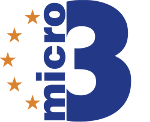Ian Joint is a microbiologist with interests in understanding how microbes interact to control the fundamental biogeochemical cycles that maintain the health of the oceans. Recent research has included elucidating the mechanisms involved in cross-kingdom cell-to-cell signaling between bacteria and eukaryotes: the effect of ocean acidification on marine phytoplankton and bacteria: and an assessment of bacterial diversity in temperate waters utilizing high-throughput DNA sequencing techniques. These recent studies, in collaboration with Jack Gilbert (now at Argonne National Laboratory, USA) and Dawn Field (Centre for Ecology and Hydrology, UK) used 16S tag-sequencing approaches to demonstrate that there are about 20,000 bacterial species in every 10 litres of surface seawater. A six-year time series showed distinct and repeatable seasonal patterns in abundance, raising interesting questions about what constitutes a bacterial community in the sea. He has led several large NERC-funded projects in the UK and currently holds an emeritus position at the Plymouth Laboratory of the Marine Biological Association of the UK.
In Micro B3 he will give advice on Metagenomics, sequence data annotation and large scale data integration.










